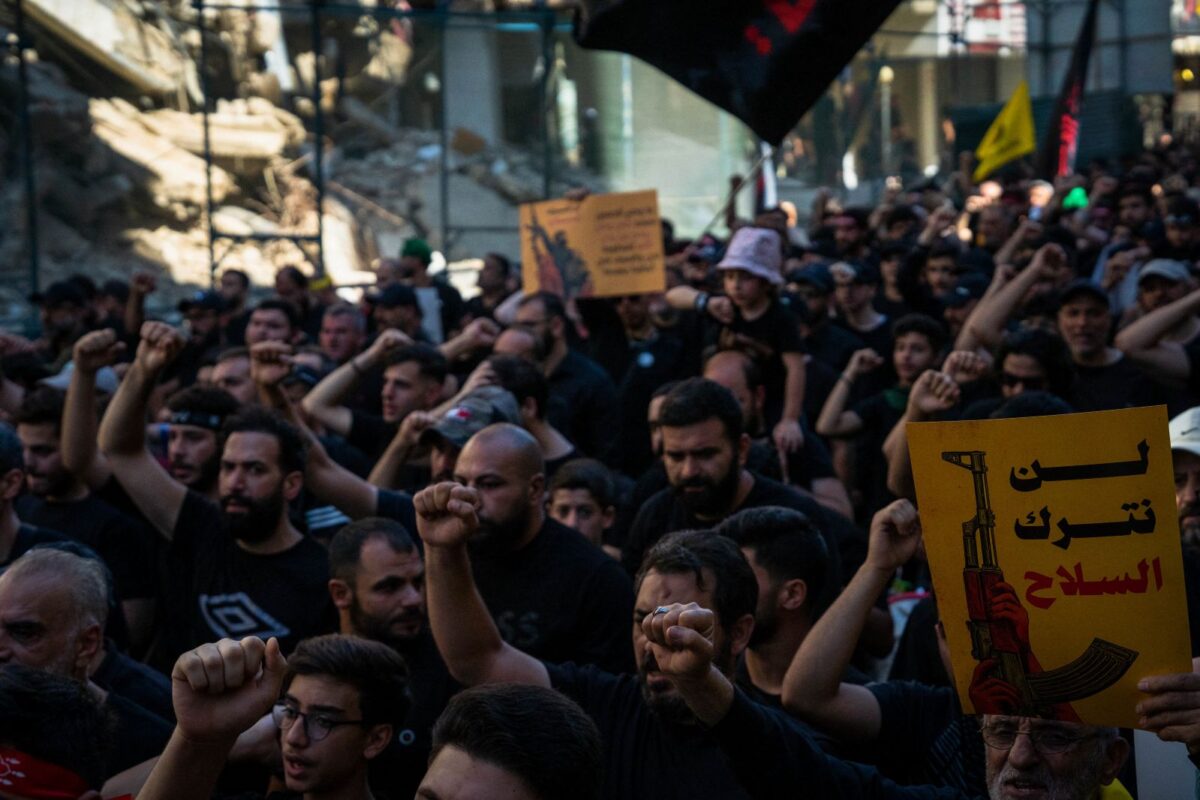
Lebanon’s political landscape and society have long been divided with different views on Hezbollah’s role and the need for disarmament. The issue has dominated Lebanese politics for decades but now there is a sense of urgency with increasing international pressure, along with the increasing military pressure from Israel which regularly targets Hezbollah despite the ceasefire.
The government yesterday discussed one of the most divisive issue in Lebanon, the fate of Hezbollah’s weapons.
It is an unprecedented move from the Lebanese government to do so, highlighting the big shift in the balance of power after Israel’s war on the group last year. This move is due to the pressure from the United states and Israel who want a formal commitment and a timeline to disarm Hezbollah, but there was no agreement.
Hezbollah is the only faction that kept its weapons after Lebanon’s civil war ended more than three decades ago in the name of resistance against Israel.
Lebanese Prime Minister Nawaf Salam said: “The cabinet decided to keep discussing the US proposals on Thursday and the army has been commissioned to present a plan to monopolize arms before the end of this year and it should be presented to the cabinet before the end of this month.”
While Lebanese cabinet met, Hezbollah’s leader Naim Qassem stressed the groups position by stating, “We don’t accept the US demands and we don’t accept any timeline for disarmament.”
“The state needs to prepare a plan to face the pressures and aggressions. That is your job, not to take away the power that Lebanon and the resistance has. The priority should not be disarmament to serve Israel, the US and an Arab country.” Naim said in his speech.
“You should stop attacks, end Israels presence in Lebanon in Southern Lebanon, and release prisoners. After that, we are ready to talk.” He stated.
Israel has kept up regular strikes against Hezbollah targets since the cessation of hostilities and has threatened to keep doing so until the group is disarmed, but Hezbollah insists it is still strong, and has even mentioned that missiles will fall on Israel if it launches a broader war.
Hezbollah minister Rakan Nassereddine and Amal Movement minister Tamara Zein walked out of the session because they opposed discussing the issue of limiting weapons to the state.
In the days leading up to the session, political leaders held talks to try to agree on how to handle the question of state control over all weapons. Before the session, President Joseph Aoun met with Prime Minister Nawaf Salam.
The new leadership in Lebanon ha committed to reclaiming the state and all of its institutions but president Joseph Aoun has preferred dialogue over force when dealing with the issue of weapons outside the state’s control whilst acknowledging that Lebanon is at crucial stage and has two choices, either to continue down the path of collapse or take the necessary steps towards stability.
“I call on all political parties to approach the issue of arms control with full responsibility. Disagreement must remain respectful within the framework of the constitution.” The president was speaking at an event to commemorate Lebanese Army Day, the institution that will take on Hezbollah if and when there is a political decision to disarm the group by force.
The army holds a fractured nation together, but it’s a reflection of the sectarian system. During the civil war in the 1980’s it fragmented, hence why President Aoun said the issue of disarmament is sensitive with consequences for national peace.
Hezbollah ahs clashed with the state in the past. In 2008, a governments decision to dismantle the group’s telecommunication network led to street violence.
For years, Hezbollah was the most powerful military and political actor in Lebanon.
Mark Daou, member of Lebanese Parliament said: “Hezbollah is still strong in the state because of the monopoly that Hezbollah and Amal have over the shia representation as well as the appointment of key figures in all of the state, judiciary, military and otherwise that are politically aligned with them.”
The group supporters believe disarmament will have implications for their political standing and security.
The Lebanese government is now expected to formally commit to disarming Hezbollah. This is a decision that could at the least ignite a political crisis.
The Lebanese now anxiously wait to see how Israel and other international actors will respond if the government does not take action against Hezbollah.
In the last few months the US has gotten much more involved in trying to pressure the Lebanese government to move and force Hezbollah to give up its weapons as a UN Security Council Resolution. For some analysts, these are incompatible goals as they say Hezbollah won’t give up their weapons until the Lebanese government shows its strong enough to prevent the Israelis from occupying Lebanese land, especially in the South and prevent It from attacking Lebanon.
The US is not willing to take initiative and give Lebanon the billion of dollars it needs to rebuild the country until the government disarms Hezbollah.
The Lebanese government is caught in a difficult situation whilst Hezbollah is now trying to reorganize themselves as a political force inside Lebanon more than a military force.
This is to avoid getting into another war with Israel as they’re going to get hit much harder than they were last time. The Iranians are not in a position to resupply them and help them whilst the Syrians backers are gone, so they have a difficult situation and the only outlet for them is a political organization rather than a military one.
Rodayna Raydan is a Lebanese-British journalist. You can follow her on Twitter @Rodayna_462
The views in this story reflect those of the author alone and do not necessarily reflect the beliefs of NOW.








